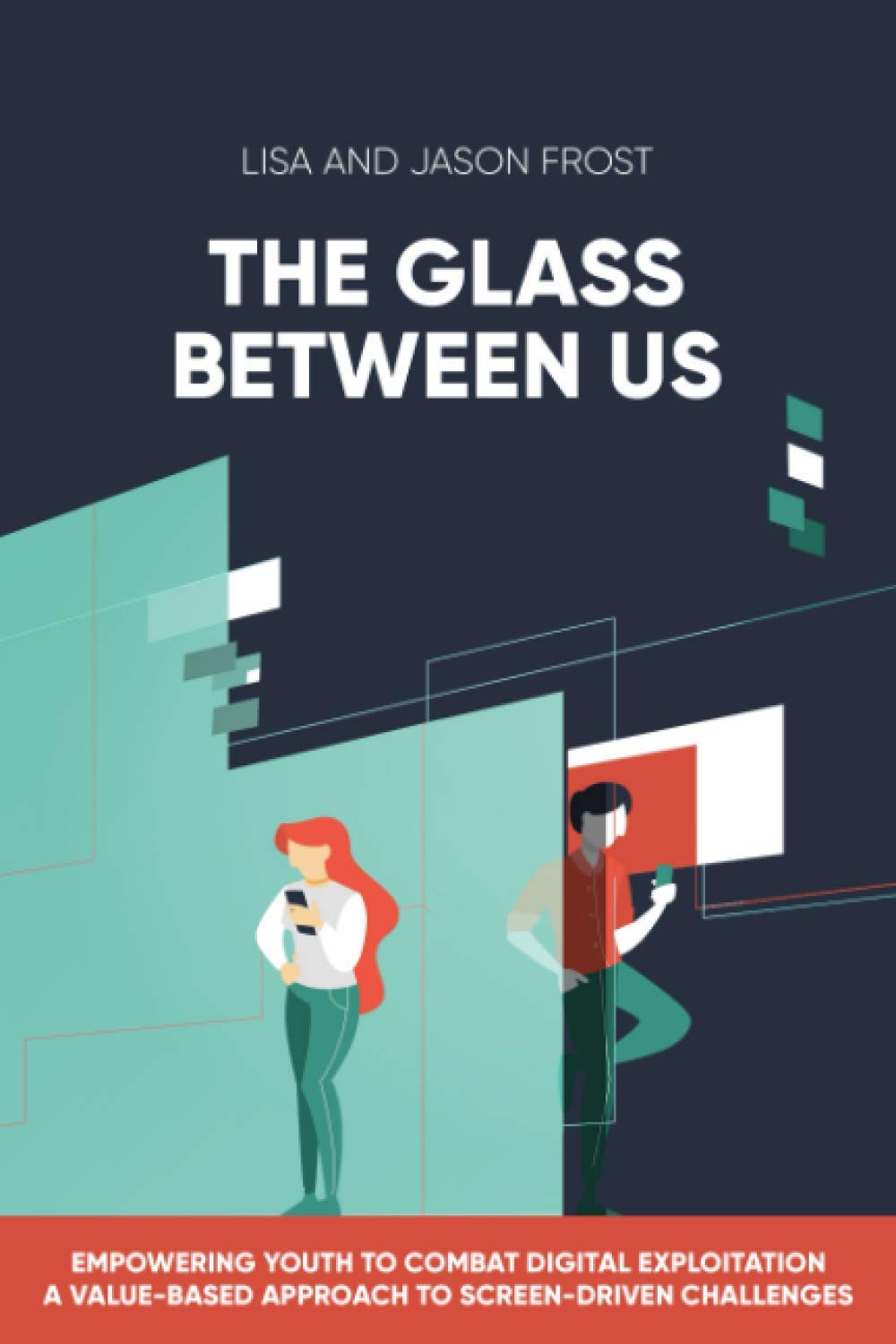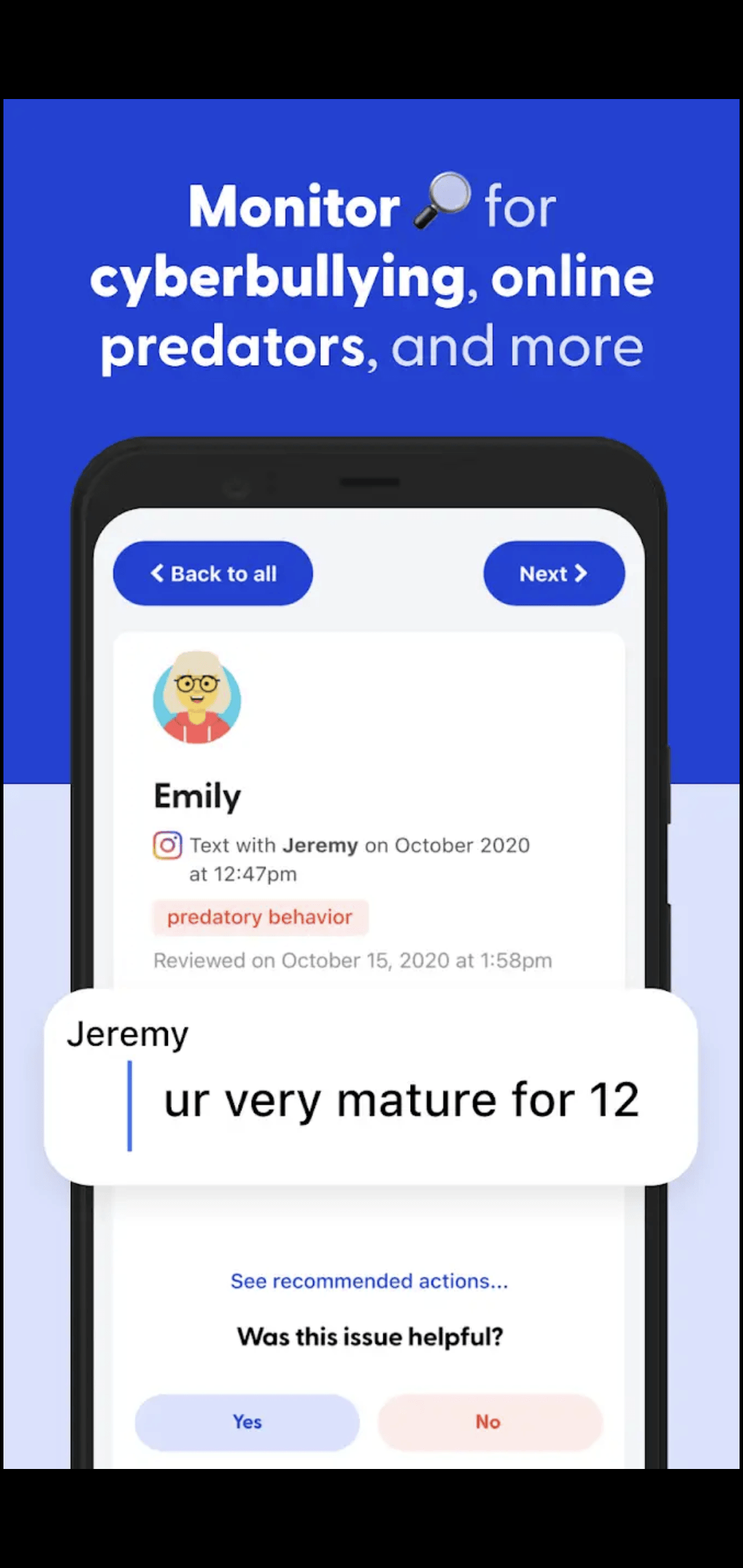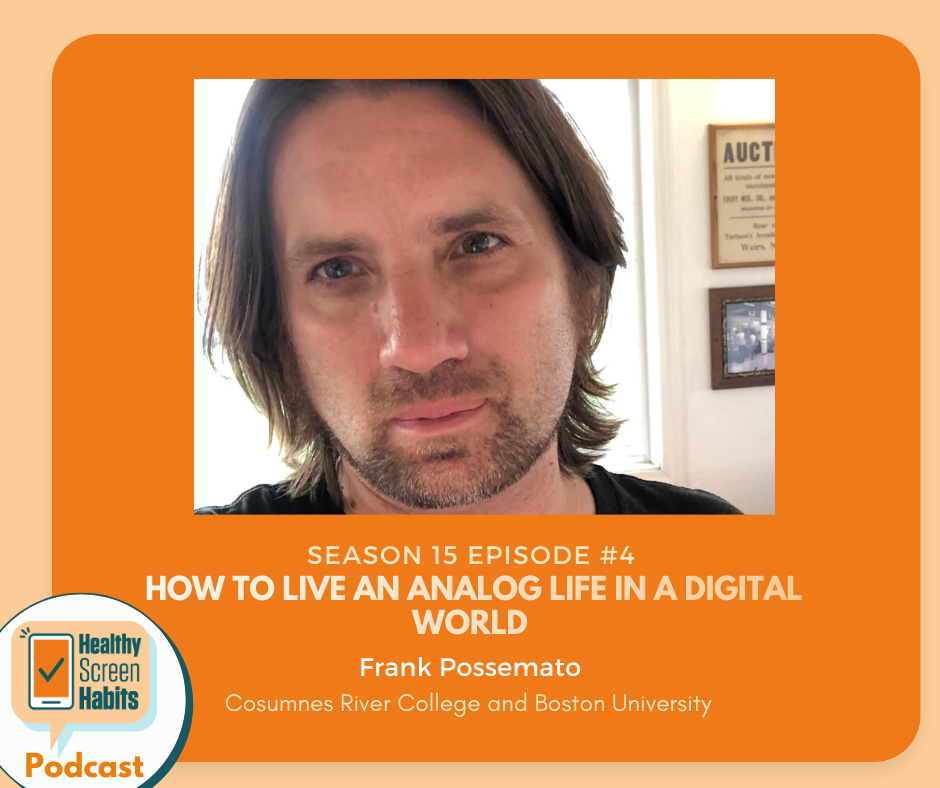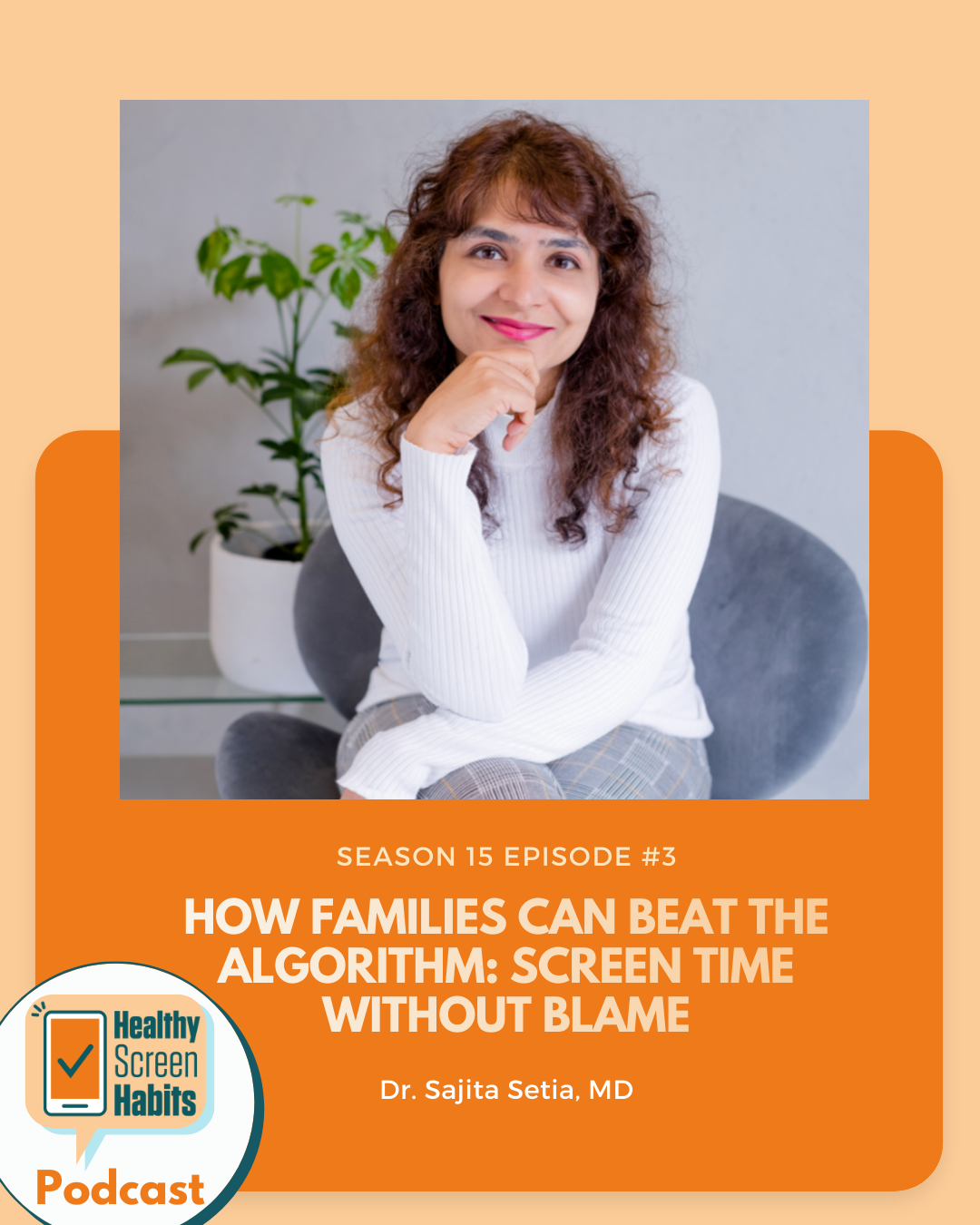Episode 3: Is Technology the Glass Between Us? // Jason & Lisa Frost of Wired Human
Hosted by Hillary Wilkinson
"Put people before pixels."
-Jason & Lisa Frost
Wired Human is a nonprofit organization founded by the husband/wife team; Jason and Lisa Frost. In their new book “The Glass Between Us” they discuss technology within the context of human behavior and how it is affecting our teens. We cover all of that and so much more in this episode.
Team Frost’s energy and enthusiasm to see the next generation become digital pioneers as they become the first line of defense against exploitation is contagious!
Healthy Screen Habits Takeaways
For more information on Wired Human:
Resources Referenced:
*Please note that this discount offering is different than what was advertised in this episode.
Show Transcript
Hillary Wilkinson (00:02):
Today, I am Speaking with a husband-wife team that I can only define as a power couple in the world of healthy screen habits and tech safety educators between the two of them. They have decades of combined work with families and teens, as well as having advanced degrees in education and human rights. They've written and published a book during COVID quarantine, which makes me kind of want to hate them. If I didn't love their message and passion so much, the book is called the glass between us. I cannot recommend it enough. We're going to talk about their book today and like publishing a book isn't enough this year. They have also launched their nonprofit organization called wired human to serve parents, teachers, and community leaders with the tools they need to empower youth to reject digital exploitation. Did I also mention they have two kids? This is a serious power, couple. I'm so honored to introduce Lisa and Jason Frost. Team Frost. Hi, you guys. Welcome to Healthy Screen Habits.
Lisa & Jason Frost (01:17):
Thank you, Hillary. That was an awesome introduction. I'm going to steal that just to get up in the morning so I can start my day. Thank you. It's good to be here.
Hillary (01:28):
Lovely. Well, I have to tell you, I read a lot, as you can imagine. I read a lot of books on screen safety and empowering teams, educating families, et cetera. I loved reading your book. It reads very easily. It's like part like magazine, anecdotal type stories, part journaling questions, part challenges. And most importantly, for me, part research study, there is so much science that you guys have to back your behavioral claims and the studies. I mean, in the back of the book, there's just pages of references. So it's a very fun and interactive read. Do you, would you like to speak at all about writing the glass between us and the way you saw your readers kind of using this book?
Lisa & Jason Frost (02:22):
Sure. this was one of the most interesting challenges we have ever taken on as a couple. So I'm the educator side of the two of us and Jason is the human rights side and we were just discussing four years actually what we were seeing around us, also working hands on with kids also looking into research, how screens were affecting kids and where you were coming together, time and time again, and gets so angry because a lot of the things we were seeing were just not supporting happiness, not supporting health, not supporting life goals that really bring flourishing.
Hillary (03:10):
And what you knew in your educator’s heart to be true for healthy childhood? I love, love, love that.
Lisa & Jason Frost (03:18):
Absolutely. And that's where we felt like we need the tools to get out there that we didn't have. And we think it's a combination of knowledge that transforms, but also ideas that sparked discussions, because we think had conversations, a lot of things can happen among us as parents, among as, as professionals, but also cross-generational generations. So it really is a tool to bridge a bit of the gap that we have in this day and age of screens of children, teens being in this world completely immersed and parents, teachers, us included often not knowing how to speak into it, not knowing how to have these deeper conversations about healthy tech use.
Hillary (04:05):
And in your book, you do this beautiful job of taking what I call the big three of like tech parenting concerns, the big three being social media, video gaming, and pornography. And you address them all while providing this model that like challenges and steers teens back to a value-driven zone, a value-driven course, you have this great acronym. I don't know how to pronounce it. R U M B one, pronounce it for me. And then can you explain what it stands for and where it comes from
Lisa & Jason Frost (04:51):
It's rum. And it actually is an old navigation term that was used in the 16th century for captains to travel long distances and not get lost. So be able to plot out a longer distance and stay the course. That's the origin of what rum is, but the acronym represents relationship, understanding, mentorship and boundaries, and essentially it's our core of how we approach from our experience and what we found to be really successful teenagers and middle schoolers, to have deeper conversations that don't speak at them, but really speak into them. And there's a huge difference because we know what it's like to try to. We may have all the best advice and knowledge. We may know all the right answers, but a teenager isn't fully going to care. And this is our experience in the years, we work with them until they know how much you care.
Lisa & Jason Frost (05:48):
And so you have to come across or you have to be able to speak into them in a way that says, I care so loudly that my words become life on your life. And that's what rum is all about. It's about coming to a place of relationship, understanding, building that foundation and being able to be an effective mentor in their life. And from that place of mentorship, or essentially introducing what our values are and how our values are connected to our identity and how our identity in who we are spheres our choices, because a teenager typically isn't going to not do something because mom and dad said, it's bad, but coming from a place of, that's not who I am and I'm going to choose a different course because who I am goes in this direction is actually a lot more powerful foundation to come by. But that's obviously not built overnight. This is a deep relationship that we journey with our teams and it takes time and effort. And ultimately we land at boundaries, which is what we said yes to in life. And we want to protect that.
Hillary (06:53):
Huh. I love how you've taken. You're talking about bridging both that kind of like communication gap. And I love how you've taken this old time technological term. And you're, you're even bridging the gap between the very old and the cutting edge using that. It's very cool. After we take our break, we're going to come back and we're going to talk a little bit more about your book.
Hillary (07:34):
Welcome back today. We are talking with Jason and Lisa Frost, the coauthors of the book, the glass between us a value based approach to screen driven challenges in your book. I'm going to read a few of your own words to you. You say we live in a day and age where image trumps intimacy quantity is valued over quality and emojis replace physically laughing and crying together. So knowing that this is our truth, and this is what our teens live today. How do you suggest that we teach teens to develop online habits that promote mental health?
Lisa & Jason Frost (09:18):
I think it's hugely important to talk about tech and the context of human behavior, because I, we believe that when teens know how they are wired and what they are actually longing for, they will make much better decisions. And at the same time, we are super aware that we have facing a tech giant big tech that will give their everything to get their attention, to get their time as long as possible. So it's not going to be easy. But we believe that no teenager wants to be exploited. So if we can talk about, for instance put tech in the context of the loneliness crisis that we have in the moment at the moment, and that is worldwide really. And not just because of COVID. I think COVID has heightened the loneliness crisis, but the the research we did for our book, we did way before COVID even happened. And the generation that's coming up is actually the loneliness of all generations. Cross-Generational
Hillary (10:23):
I remember reading that and I was stunned. One of the reasons why I loved your book is you include within the pages. It's very interactive and you include these QR codes. When you have like in that section, you have a section where it's a QR code where you can use your own technology and scan the QR code for the UCLA loneliness, quotient quiz or something to rate your own feelings. And I just, I thought that was brilliant to have people interact with the texts that way.
Lisa & Jason Frost (10:59):
Yeah, that's right. That's, that's exactly what we want is that our readers do that. And then families do that together. If a parent can do that with that child and have a discussion about it, are, is your time online actually furthering your close relationships? Or are you just super hyper-connected but actually have no one who cares about you. If that's the case, maybe there's something that you can do that we can do. So we are trying to approach this whole topic in the context of human relationships. And we know that that most of text design has the goal to be hyper-focused about ourselves. We are the products hyper-focused about our appearance and how we come across. And it's not so much about supporting each other, caring for each other, investing in each other. But happiness research proves that that is actually where a successful life is found. We know that beyond a shadow of the doubt in relationships is where we thrive.
Hillary (12:06):
Yes. In another part of your book, you say this rising generation is in a battle between relationships with people and pixels. I just, I I'm kind of a language geek. I love alliteration. So it really stuck with me, people in pixels, the winner of this fight will dictate the course of their lives. And I thought that was so powerful and coming just like you said, coming out of quarantine, we have essentially trained ourselves and our kids to be very screen-based during this like hyper point of survival. And how do you guys suggest that we move forward and raise kids to do this evaluation of people over pixels?
Lisa & Jason Frost (12:53):
Yeah, I think a great place to start is talking about, like, if we're going to talk about a car what's good for a car, you know, you talk about it's designed, right. And the human body and the science, you know, there's a specific design there that when we feed the body, the right things, we get great results. And one of that is with mental health and relationships. You know, if you look at the grant study, for example follow the course of a Harvard graduate students over the course of their entire lives and found what was the key to happiness. And it was really the close relationships they had, and it didn't matter about their IQ or a whole bunch of other different factors. And, but what really mattered was the warm relationships led to successful lives. And so the same thing, they said that whether you smoked you're obese, you had high blood pressure essentially a couch potato had a better chance of living longer than somebody who didn't steward relationships well and had cold relationships in their life.
Lisa & Jason Frost (13:53):
So that alone, like as a baseline to realize that what are we trying to use tech for? Oftentimes we're trying to connect through it and to recognize that that actually isn't going to be the same and give us the same results as what we're experienced in, in reality. And in the best example I always give is gaming, right? Because I think a lot of teens loved the game. I loved the game growing up, but of course it's changed a lot since then 15 years ago. And if they're spending eight hours in front of a screen gaming on the weekend, when someone unplugs the computer, the PS five or whatever what do they have in their hands afterwards? What do they carry with them? And oftentimes it's emptiness. And if you spend a long day hanging out with friends and building into each other and learning just through those relationships, while you're setting yourself up for the rest of your life, to be able to do that and steward that into the long-term and carry those relationships with you.
Lisa & Jason Frost (14:49):
And if not those relationships, you're carrying the knowledge of how to do relationship well with you into the future and that'll impact your marriage, that'll impact your career. That'll impact a whole, you know, a course that you can imagine that's been formed in those years. I remember just to add to that, I remember interviewing a teenager and she said, she always knew whether a certain somebody had boundaries around tech in the home, like when she would meet a fellow teenager or a student that went to her school, she could tell it in their social behavior. And we believe, of course, you can make a friend for your child or bring them to them. That's not the job of a parent, but we can start to model that pro-social behavior, that power of presence that you care more. I care about you more than my screen. We can model that at home and that alone can change the trajectory of a child's life because they were carrying into their social interactions and they would have watched these values. And, and it will help them seek out friendships when they understand what a true friend actually is.
Hillary (16:09):
And I think it's hard for parents to remember that the modeling happens during the times when you don't know you're being watched.
Lisa & Jason Frost (16:21):
That's a good word.
Hillary (16:25):
Know that your kids are watching, how you interact with the, are you somebody who stays on the phone while you're checking out at the grocery store? Are you somebody, you know, in, in our family, we always put the person above the pixel to use your guys' language. I just, I'm going to steal that. I love that. And it's such important learning that happens for all of us. So not just writing this amazing book that you guys have done. You also founded wired human. And when we get back, I want to hear a little bit more about that. We are back. I'm talking with Lisa and Jason Frost, founders of wired human, a nonprofit organization, whose mission is to serve parents and professionals with the tools and solutions. They need to empower youth to reject digital exploitation and pursue a life of community adventure and purpose sounds exciting already. When we talk about digital exploitation, it can mean so many things. And in your book, the, the glass between us, you say, teens need to be reminded that they are not passive victims of this corruption. They're destined to be the change that dismantles what they are not responsible for creating. I love that kind of putting them in the driver's seat. It takes a Warrior's heart to rise out of the mess and claim back the life they were meant to live. So what does this look like? This is where your kind of your foundation comes in. I know you guys have been working kind of with Washington on some stuff. How can kids expose and stand against online exploitation?
Lisa & Jason Frost (19:56):
That is a great question. I there's so many different directions. We could go with this, but I'm going to be really practical. I really think one of the best things kids can do is to start with their values and realize, because here's the thing the, you mentioned at the beginning that we cover social media gaming and pornography, and there is a common thread going, going through all of those pillars, which is that time and attention is, is being fiercely fought for to monetize it. And so whether it's social media, whether it's gaming and especially pornography, it all has the same goal, steal their time, monetize it into something that becomes a value to these industries. And so we really want to raise up kids to go against the grain with their values and all the values that are getting from the industry, focus on yourself, be like this person indulge in more of this, try some of this, you know, it's like this consumeristic self-absorbed thing that just puts so much weight on them, but at the same time, they're feeding into it and supporting that entire industry and lifting it up.
Lisa & Jason Frost (21:05):
So when you get a whole new set of values and you really recognize that you're actually starting a revolution because your friends are going to see that the people around you that you're, you know, you're actually influencing yourself and even getting online and using the these different mediums as a platform to really go into new direction is one of the greatest things I think any teenager can do to make this make a stand against exploitation online.
Hillary (21:40):
And I think that just like with other massive boosts that we've seen in technology, for example, the industrial revolution, sadly, it took casualties and it took people getting really hurt and kids, unfortunately getting very exploited because they had tiny hands that could work looms and all of those things that took, you know, putting into act the child labor laws. And so it is incredibly unfortunate that again, with this kind of, technological revolution, if you will, this, this boost here again, what we're looking at is this same pattern of casualty of those who are most vulnerable. But I, I have such hope that with organizations like yours organizations like ours, the information that people are now knowing and seeking that we will be able to change laws to address things like section two 30 that you guys cover well in your book. And you know, go into legislation, which is where you're going to see the real differences made.
Lisa & Jason Frost (23:03):
Absolutely. We couldn't agree more. We think it's a, it's a fight on two ends. We do want to see this, this rising generation truly become pioneers, where they can be the first line of defense against exploitation, because they feel the ownership, they feel equipped, they feel ready. And we feel that we have a huge piece to play in that, to get them ready to get to that place. And passivity is the worst thing we can do. I know that oftentimes we don't know the newest app or whatever, but we do have life experience. And we do know a great deal about what makes a life a good life. And not that we are going to tell our kids exactly what to do, not the goal, but if we just leave them to their devices, it's the wrong routes. But we have very hopeful.
Lisa & Jason Frost (23:53):
We are seeing more and more young people rise up and say, I want to be the change. This is not making me happy. This is not making me feel fulfilled. I want to chart my own course. And, and other young people are rallying around those people because they actually know deep down and said, I'm not entirely happy. It doesn't bring me anything if I post 10 selfies a day. But that's the end goal. Nobody truly knows who I am. So yeah, we think if we go at this together, they will become the first line of defense, but the laws have to change. It's not a question. And it's like, you quoted, it's not the kids that created them. And they were not taken into consideration whatsoever. Maximum profit. That was it. And that still is it to this day.
Hillary (24:48):
I agree. So on every episode, it's, it's hard to come off of this very impassioned cry for help from our lawmakers and go, okay. So on every episode of the healthy screen habits podcast, I asked for one healthy scream habit that our guests can put into practice in their own home. Do you guys have one of those?
Lisa & Jason Frost (25:15):
Yeah. We like to take screen breaks to support whatever we are doing to support our quality time as a couple, as a family, the time with our kids. So one of the things that I do for example is I take Sundays off. I still use my phone to text or to call people because that, for me, is that a big piece of connection. But that's about it. And it helps me regain that focus of who is important to me, who is close to me. Who do I care about? What about you? And there, mine is, mine was very similar, but I think something that I'm really excited about that I'd love to challenge parents to do. And it sounds super counterintuitive, but I challenged parents to go and watch one of their kids' favorite superhero movies and dissect in the movie, like ask great questions afterwards.
Lisa & Jason Frost (26:13):
What were the values that the superhero lived by? So if we're talking about Tony stark from iron man, I think he's a great example because there's certain values that guy lives by like courage and bravery. And these things that led him towards some great goals, but there's also some values that he lived by that were really not so good that led him down a path that actually was very destructive for his life. And you can see that wrestling match. And I think it's actually really tangible. If you have a middle schooler and a high schooler, this is something that speaks their language that they get. And it's really fun as a parent to enter their world and a place that values where they're at and where they're thinking, but introduce something actually really deep for them to make decisions about their life and where they want to go and recognize what values am I in that I'm living out of that are actually hurting me online, hurting my relationships and taking me further away to where I want to actually go in life. And what are the superhero values that I live by that are taking me towards my goals and actually supporting the journey that I've said yes to in life.
Hillary (27:19):
So just so typical, I asked you for one, you deliver to you guys are amazing. Well, thank you so much, Jason and Lisa Frost for being here today. If our listeners want to find out more about wired human or purchase their own copy of The Glass Between Us, which I totally recommend, I will link it in the show notes and perhaps they can go check you out themselves@wiredhuman.org.
Lisa & Jason Frost (27:48):
That would be fantastic. Thank you. Thank you, Hillary.
About the podcast host, Hillary Wilkinson
Hillary found the need to take a big look at technology when her children began asking for their own devices. Quickly overwhelmed, she found that the hard and fast rules in other areas of life became difficult to uphold in the digital world. As a teacher and a mom of 2 teens, Hillary believes the key to healthy screen habits lies in empowering our kids through education and awareness.
Parenting is hard. Technology can make it tricky. Hillary uses this podcast to help bring these areas together to help all families create healthy screen habits.











